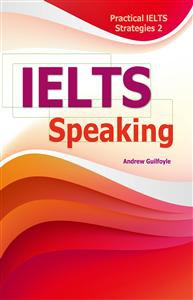
In the last two posts, I mentioned that the claim that the school or teacher ‘uses original IELTS material’ should immediately make you uneasy. I mentioned how test material is not learning material, and the danger is that this ‘test material’ will be used for memorising answers, either spoken or written. This therefore leads to the issue of memorisation. So, let’s think of the IELTS Speaking Test, and the …
‘Just memorise this’ syndrome.
Yes, unfortunately, many students are searching for quick easy answers, and many schools/teachers are searching for quick easy money. It’s a perfect (and dangerous) combination. Enter the ‘memorisation’ approach. You pay the money; you get taught (by ‘IELTS experts’) the memorised answer to some 20 or 30 IELTS Speaking Part One Question Cues, or Speaking Part Two Long-Turn Topics, just like the robot in the above picture.
This is obviously a popular approach, often combined with the use of Chinese. Sadly, (1) memorisation and (2) the use of Chinese, present a combination that is just too easy for some people to resist, and it is consistent with decades of educational practice in Taiwan, from elementary to senior high school. It is the Asian way, right? That’s hard to beat, and I realise that I’m fighting against the ocean here. But I will try to educate you because trying to help people is what I do.
Here’s what my IELTS Speaking book (p.39) [See picture below] says on the subject.
You can see that honesty is the important issue here. … this is a point I will be repeating again and again. All the ‘bad’ cases in Tips 4, 5, and this tip [Tip 6] are forms of dishonesty. There is much bad IELTS ‘preparation’ material teaching this, but it all goes against western culture and the situation you are in, and is not the basis of good speaking. So, remember, nothing can replace being able to speak well. This suggests you should just practice speaking.
That’s pretty clear, right? Crystal clear, and yes, my IELTS speaking book consistently repeats this same message: be honest! My teaching also consistently repeats this same message. Why? Well, simply because the best speakers are honest. They don’t even know why they get a high IELTS mark. Sometimes they are surprised, like one student of mine who got IELTS 8 (twice). Her response to me was, “I don’t know how the f…. I did it?” Well, that’s how (the f... ) she did it – by speaking so honestly. The examiner picked it up.
‘Bing!’ Good speaker here.
Now, enter the memoriser.
‘Eeeeeeek!’ Bad speaker here.
Yes, here’s the reality. Memorisation ...
- doesn’t work – that is, is very unlikely to increase your IELTS speaking score,
- could actually lower this score,
- doesn’t help your English level,
- could actually lower your English level,
- doesn’t look beyond the immediate IELTS test – that is, it is very shortsighted,
- makes you a worse person – that is, corrupts your character (since you are being taught that deceit is a legitimate strategy to succeed in life).
That last bullet point doesn’t seem to matter to many teachers, books, and schools. However, remember, your IELTS examiner comes from a different culture - a western culture - and maybe honesty matters to him or her a lot more than you think.
(To be continued in the next post).
Find the meaning of the underlined words, also repeated below.
- consistent (adj)
- crystal (adj)
- to corrupt (v)
- deceit (n)
- legitimate (adj)
- strategy (n)




 留言列表
留言列表


